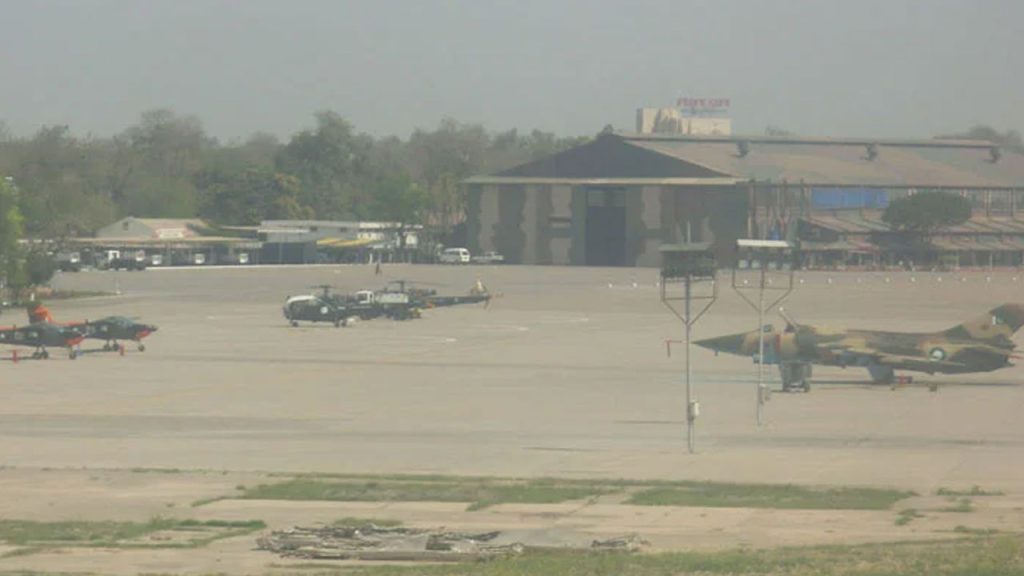A deadly terror plot targeting the Pakistan Air Force’s Masroor Airbase in Karachi has been thwarted. One of the country’s top intelligence agencies intercepted the plan before it could be executed, intelligence sources confirmed.
The scheme was crafted by a commander of the Afghanistan-based militant group Fitna al-Khawarij (FAK). He also heads the group’s suicide squad. The elaborate plan aimed to breach the strategically important airbase, destroy key installations, and engage security forces in a prolonged gunfight.
A total of nine militants were involved. Five were Afghan nationals. The group had crossed into Pakistan recently. Their leader was already wanted for multiple terrorism cases. Intelligence officials revealed that the attackers intended to storm the base from a specific point, take over control, and hold the facility for as long as possible.
This terror plot was under the direct watch of FAK’s top command in Afghanistan. It had been in the works for almost 13 months. The attackers had rented housing close to the airbase and conducted detailed surveillance of the site over an extended period.
But the plot unraveled before it could begin. Intelligence officials had been observing the group for weeks. Once the final phase was about to begin, a swift and secret operation was launched. The militants were arrested from different cities across Pakistan. The coordinated action dismantled the planned attack completely.
Officials say the terror plot not only threatened national security but could have caused massive destruction. The airbase, home to critical assets, was saved from what could have been a catastrophic event. The successful operation also led to the breakdown of a FAK network that had been behind earlier attacks.
One of those attacks took place in November 2024. Chinese engineers working at Liberty Textile Mills in Karachi’s SITE area were targeted. The same FAK commander, now in custody, was the alleged mastermind behind that assault as well. After the strike, he escaped to Afghanistan and continued directing operations from there.
This militant leader is known for his expertise in improvised explosive devices (IEDs). He trained in Afghanistan and had previously fought with the Afghan Taliban against NATO and ISAF forces. His background made him a key asset for FAK’s leadership.
Early findings suggest involvement of foreign intelligence services in this terror plot. These hostile agencies are accused of funding and arming terror groups in a bid to destabilise Pakistan. Intelligence sources linked this recent attempt to a similar conspiracy foiled in October last year. That plan had also involved FAK and aimed to sabotage an international event in Islamabad.
Despite growing threats, Pakistan’s security forces remain committed. Intelligence agencies, military units, and law enforcement bodies continue their joint efforts to protect the country. Officials reaffirmed their resolve to crush every form of militancy and maintain peace through unrelenting vigilance.


